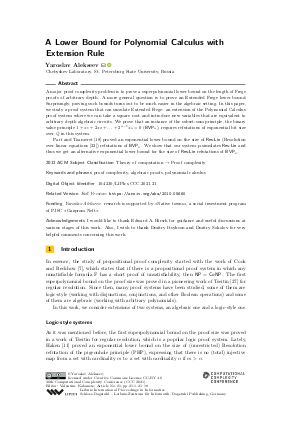LIPIcs.CCC.2021.21.pdf
- Filesize: 0.78 MB
- 18 pages

 Creative Commons Attribution 4.0 International license
Creative Commons Attribution 4.0 International license












Feedback for Dagstuhl Publishing